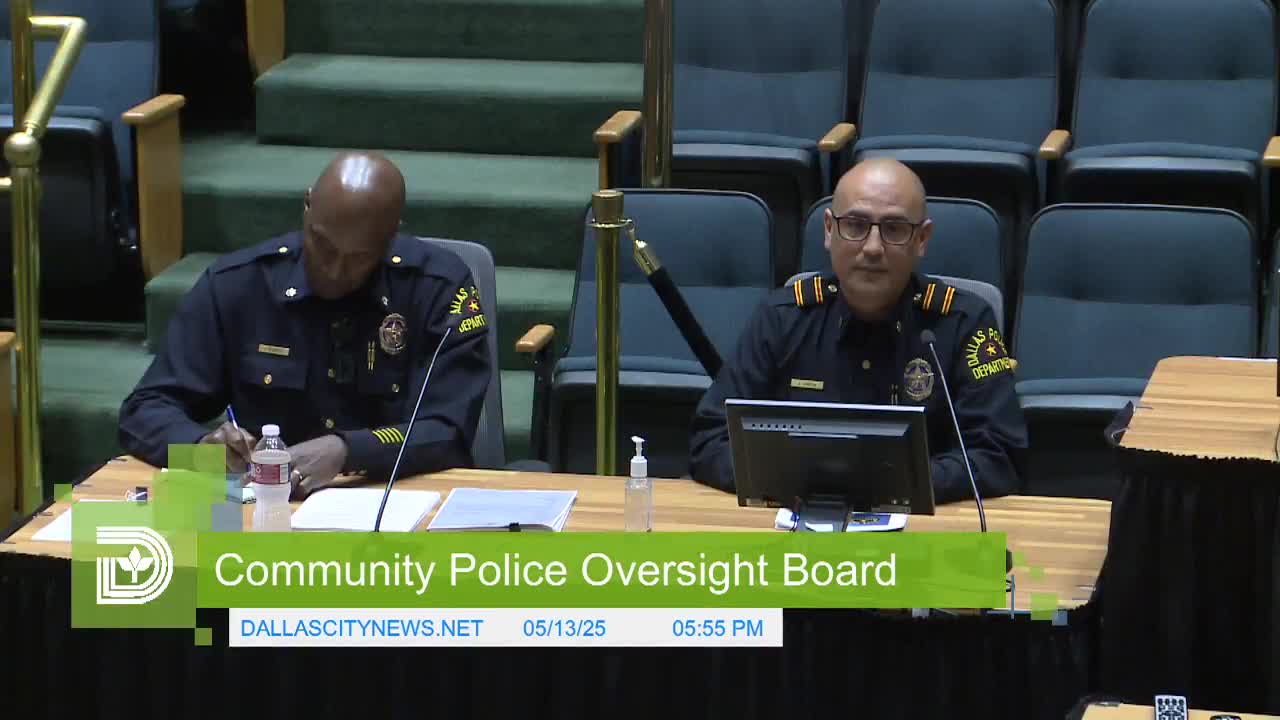Article not found
This article is no longer available. But don't worry—we've gathered other articles that discuss the same topic.
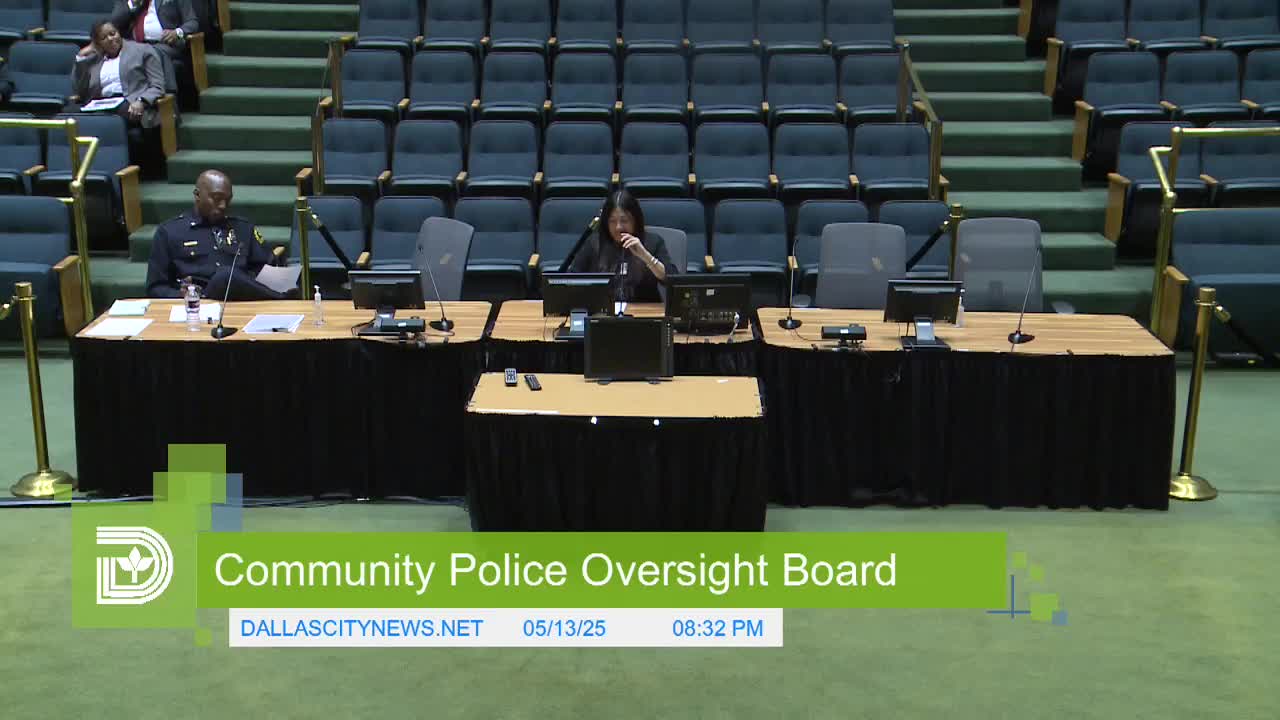
OCPO launches quarterly newsletter and readies mediation program; outreach team reports robust April engagement
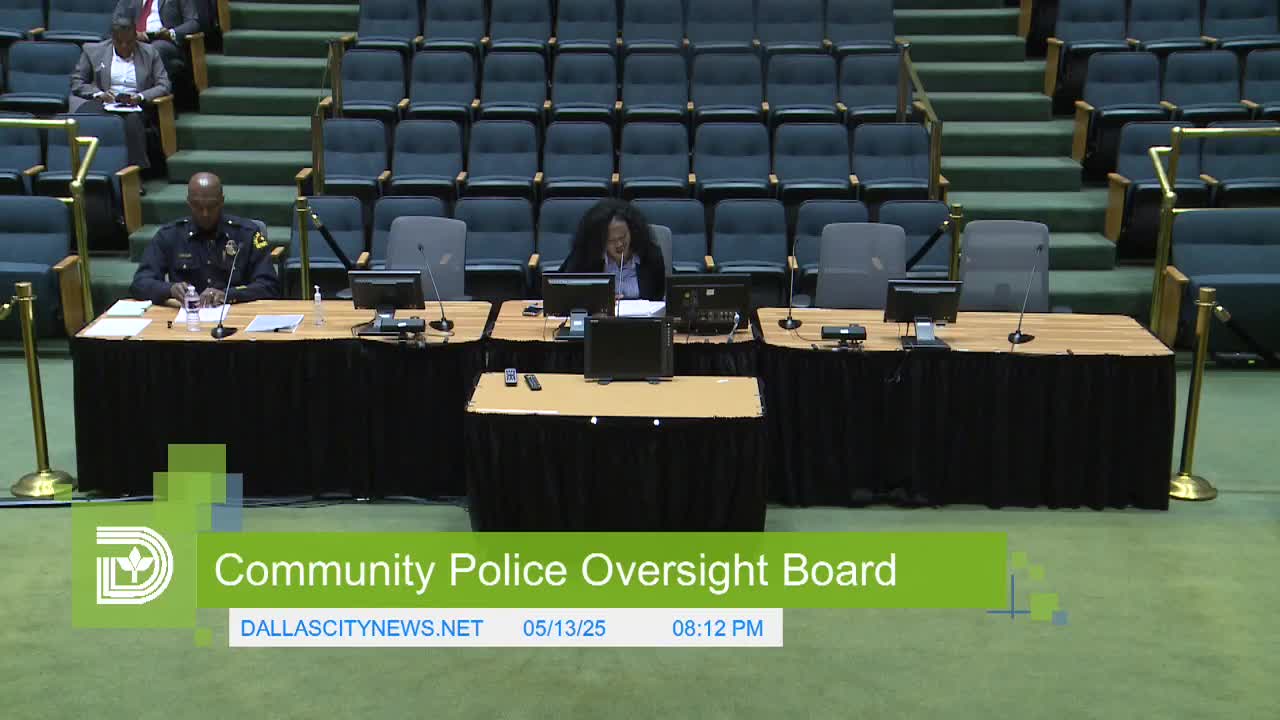
Policy analyst flags state bills and White House order that could reshape policing oversight in Dallas
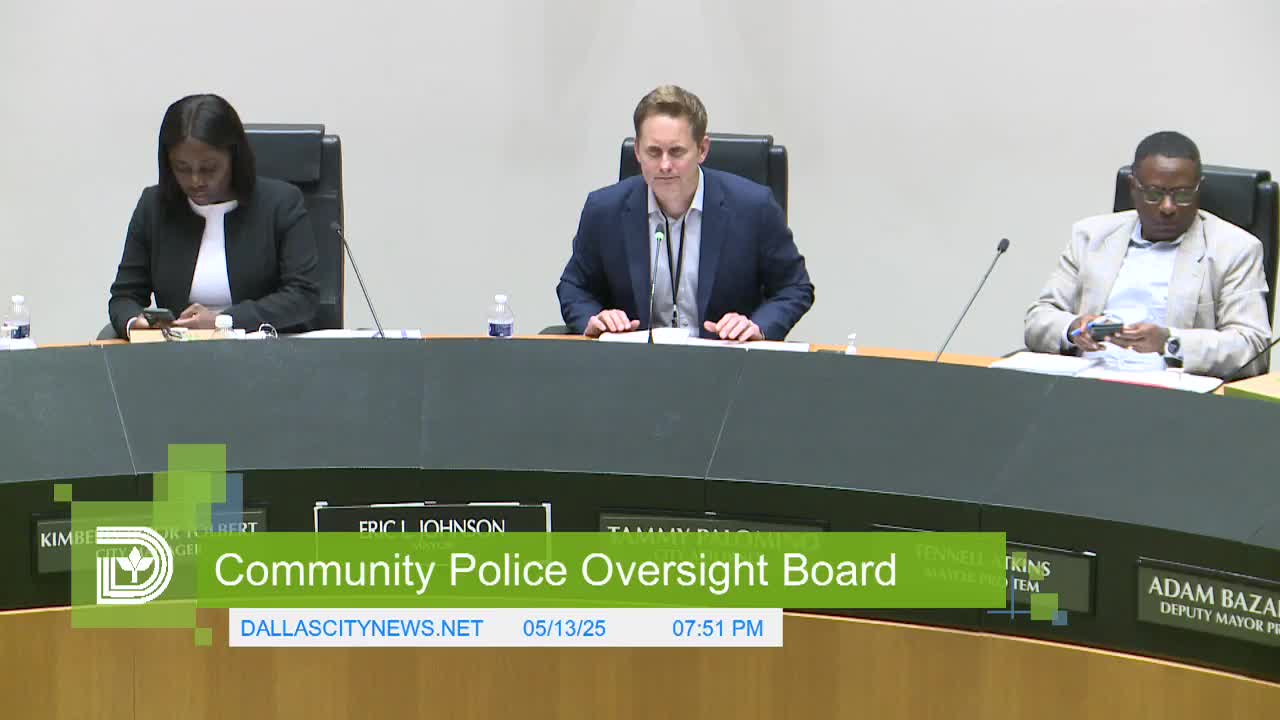
OCPO reports death in custody, opens director‑initiated investigation and declines independent review request
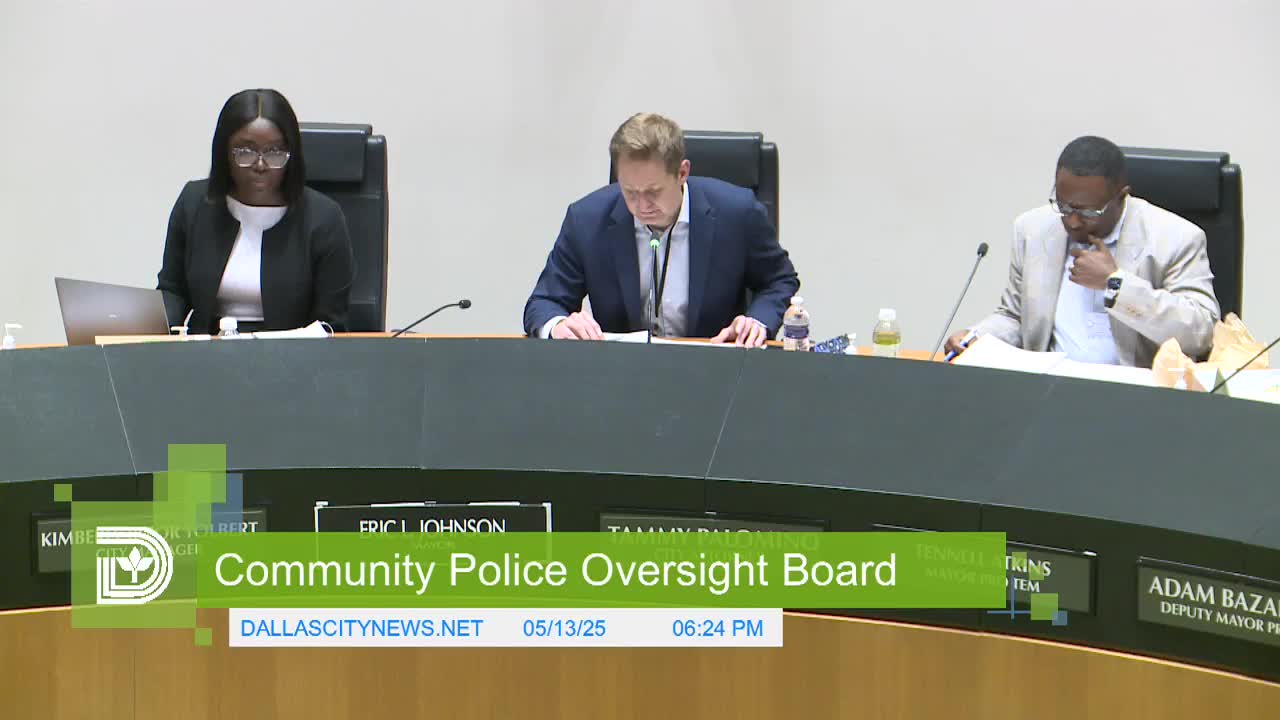
Board debates Dallas role if Texas mandates 287(g) participation; refers matter to policy committee
